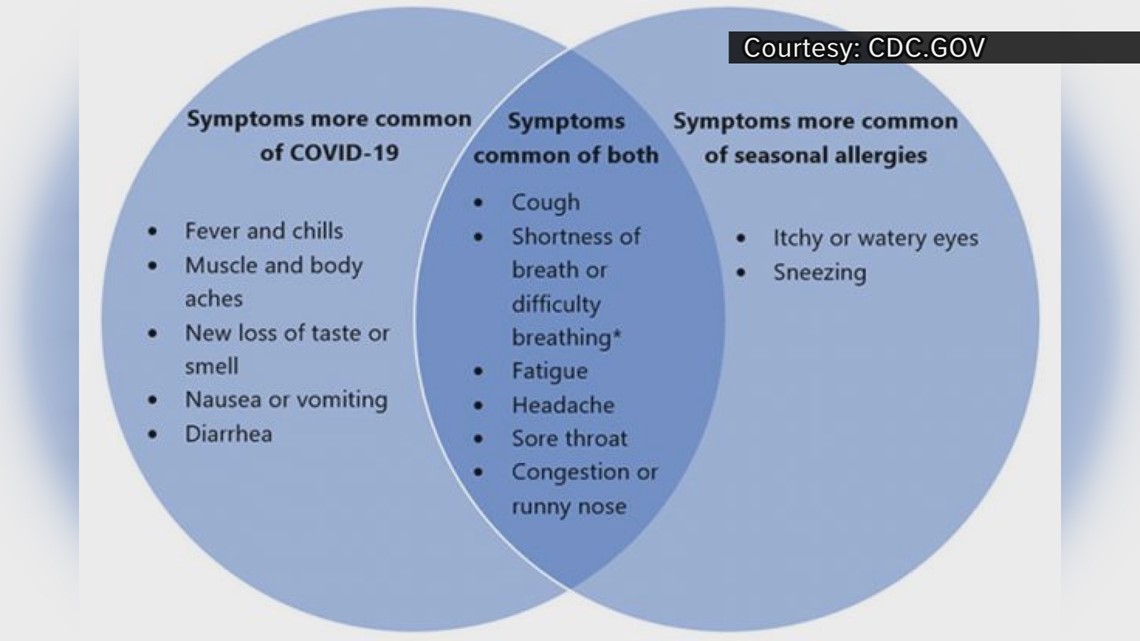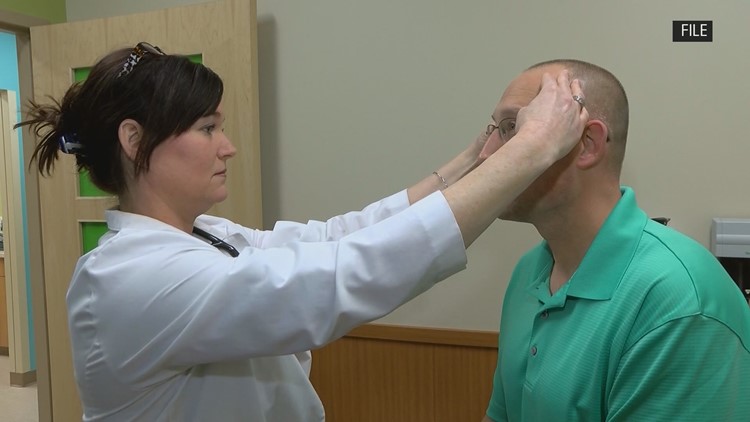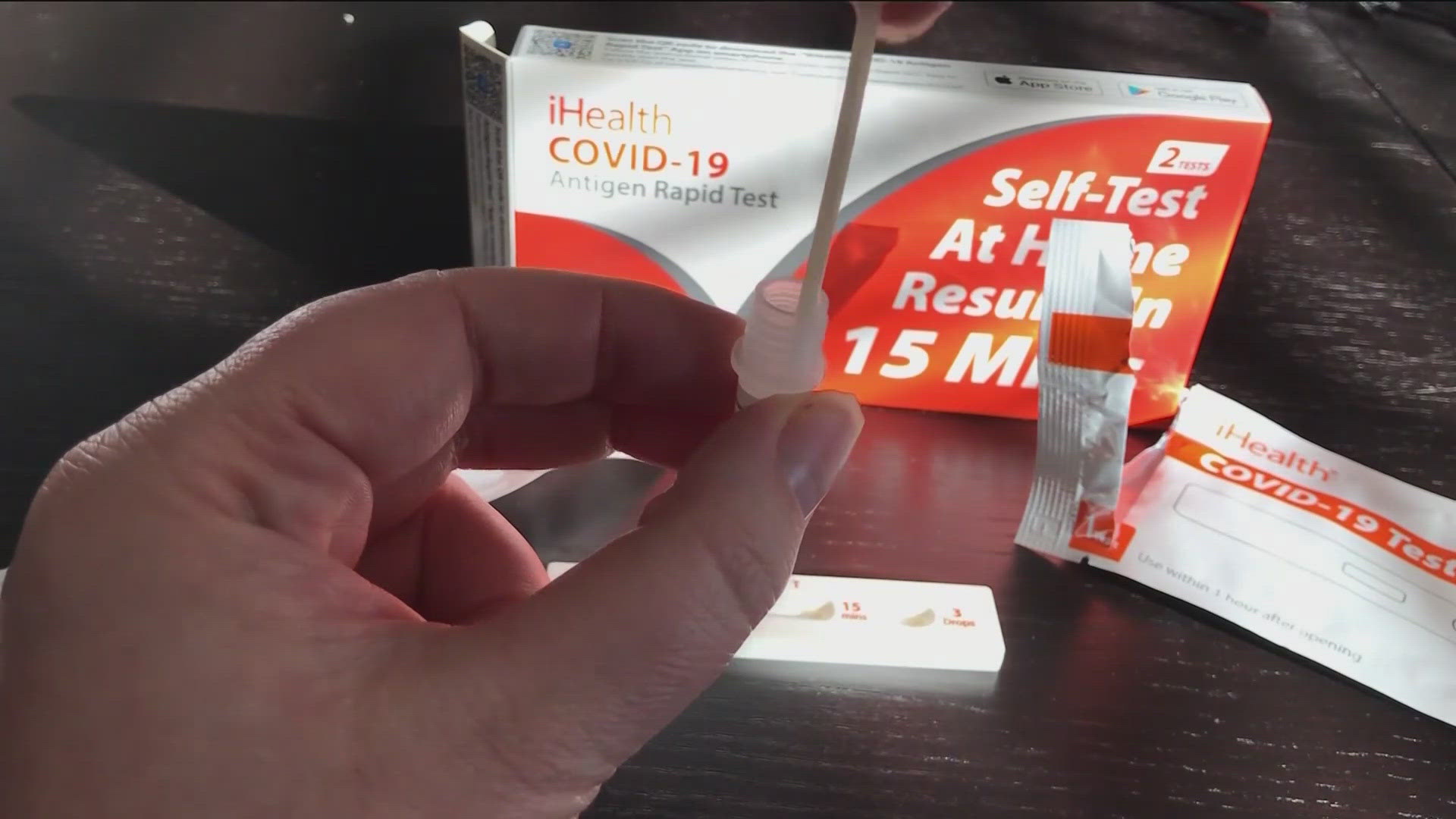TOLEDO, Ohio — As seasonal allergy season moves into the fall, how are you supposed to know the difference between an allergic reaction and COVID-19 symptoms?
With everyone in the country having a heightened focus on their health right now, it may raise some red flags if you or a loved one begins coughing or begins having regular headaches and sore throats.
While those are confirmed symptoms of the current novel coronavirus, they are also common symptoms of seasonal allergies.
With September right around the corner, northwest Ohio has begun to see its fair share of fall seasonal allergies, with the biggest culprit being ragweed.
According to Deepika Kumaresan with Mercy Health, about three out of every four people who suffer from spring allergies also react to ragweed.
Although both allergies and COVID-19 can cause coughing, shortness of breath, headaches and even some loss of taste and smell, she's said the symptoms from COVID-19 are usually across the board far more severe.
If you usually suffer from seasonal allergies, Kumaresan said to take a step back and try to gauge if these symptoms you're feeling are similar to your usual allergies, or something else.
"If you have had allergies all of your life, you would be able to see and tell the difference between you being short of breathe because of asthma or or seasonal allergies and also a shortness of breathe due to an infection such as COVID," said Kumaresan.


Kumaresan said in the age of telemedicine, there's no reason you shouldn't be able to reach out to your primary care physician to get their opinion on your symptoms.



